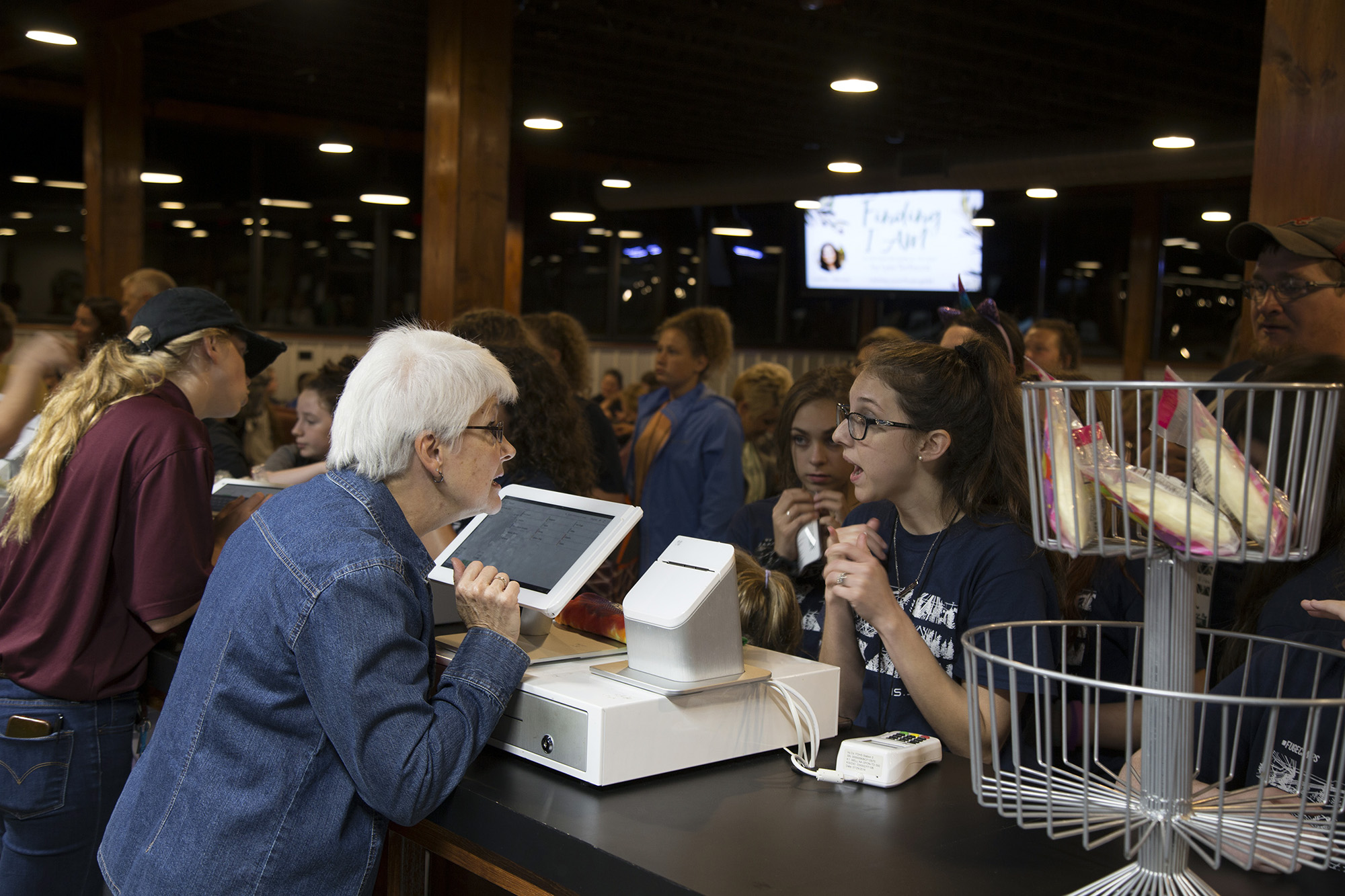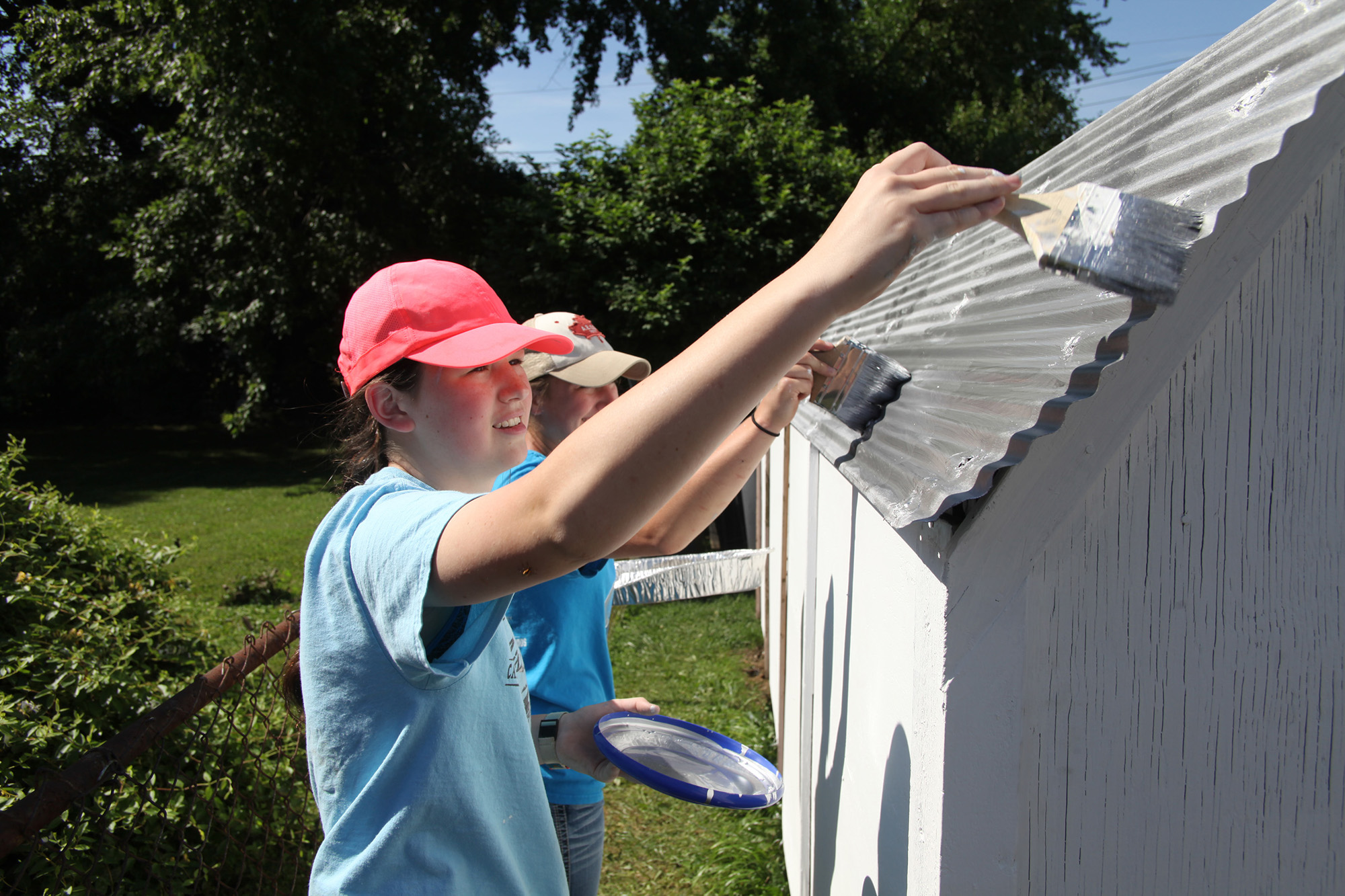 [1]
[1]WAKE FOREST, N.C. (BP)–While many Southern Baptists think Sunday school is important, few take that attitude as seriously as Julian Mangum.
While many Southern Baptists have achieved pins for perfect attendance for a year, or even several years, there are no records to indicate that anyone has ever earned more consecutive pins than Mangum.
Mangum was honored at Falls Baptist Church in Wake Forest, N.C., Sept. 10 for having achieved the almost impossible-to-imagine milestone of having perfect Sunday school attendance for the past 73 years.
That’s 73 years — almost three-quarters of a century.
How, and maybe a more significant question, why has Mangum done this?
“Well, I just always thought it was important,” he answers simply. He just thought it was important.
Mangum was the second generation of Mangums born in the Falls community near Wake Forest. When he was born on Nov. 25, 1919, he and his parents lived on land that Mangum’s grandfather had owned. Mangum still lives in the tidy white house that his father built in the 1920s on his family’s land. “My grandfather owned a lot of the land around here, but it’s been divided up through the years, so there’s not a lot left in the family,” Mangum said.
Mangum’s simple country life took a dramatic turn in the 1941 when he was drafted into World War II.
“I got called up,” he said. “But even then, I got to go to Sunday school on the Army base when I got my training. Then, we got shipped off to northern Ireland where we were preparing for the invasion of Normandy.”
Mangum said bad weather and rough seas made it impossible for his infantry unit to arrive in Normandy until a month after the invasion began. Even through this, Mangum was able to have Sunday school with the chaplains. “They were fine men,” he said.
During the fighting in France, Mangum and 40 of his fellow soldiers were captured by the Germans and sent to a prisoner of war camp in eastern Germany.
“Every soldier had been given a small Bible, a Testament, and I had mine with me. When we got to the camp, the Germans made us empty our pockets and give them everything we had. I had a little bit of American money and some French money, and I had to turn that over to them. Then, they took my Bible and told all of us that if anyone was caught with one of those, they’d kill him.”
Mangum said he was able to get word to some of the other soldiers who had not been searched yet to hide anything they could, and if they wanted to keep their Bibles “to hide them good.”
Mangum said that the men told him that they had been watching him and knew that he was a Christian and knew his Bible, so “I sort of became the preacher,” he said. Even in the POW camp, God provided a way for Mangum to not only have Sunday school, but to teach it as well.
One day, their Germans captors caught one of the men with his Bible and killed him with a bayonet. “I prayed that no one else would get caught and no one did,” he said.
For 10 months, the American soldiers learned Bible stories from and prayed with Mangum. “We prayed every day, and we had Sunday school every Sunday.” He said having the Bible study time on a particular day gave them a sense of structure to their week, as well as something to look forward to.
“The Germans were cruel,” he said. “We never got food that was fit to eat. Most of the time we didn’t eat what they brought because it was so bad we were afraid it would kill us.”
Again, God provided.
“When we got there, the Germans had all of us hold out our hands, and they looked to see who had calluses. Those of us who did were assigned to work outside. The city boys with soft hands had to work inside,” he said. Part of the outside work involved working in the potato field. “When we knew that we’d be assigned to work in the potatoes, we made sure we tied up our pant legs and would slip a few potatoes down our pants and take them back with us. We could bake them in the coals in the stove in the barracks and have them to eat,” Mangum said. “Those baked potatoes kept us alive.”
Ten months after being captured, Mangum and the other POWs were liberated by Russian troops as the Russians marched west across Germany.
“We were scared of the Russians. We didn’t know who they were,” he said. But, since they offered freedom to the POWs, “we didn’t question it.”
“We just took off across Germany to where we knew the Americans were,” Mangum said. “We didn’t know it then, but we were in no man’s land. Shells were going off all around us, but we kept going. When we met up with the Americans, they asked where we came from and when we told them, they just about didn’t believe us. They said nobody could have made it across there. But we did. God put his hand around us and kept us alive.”
After reattaching themselves with the Americans, the former POWs were sent back to Fort Bragg in North Carolina, then Mangum went home to Wake Forest.
“When I got there, I walked in the house and my sister didn’t know who I was. She said she didn’t even recognize my voice.”
Mangum said after getting back home he was satisfied to stay there. He worked in the hardware business and kept his home together.
“I was the one who took care of my parents,” Mangum, who never married, said. “When my father got so ill, I took care of him, giving him shots and everything. Then, before he died, he told me to take care of my mother, and I told him I would. I took care of her until she died. I did the cooking and housework.”
All the while, Mangum, who lived “just down the road and over the bridge” from Falls Baptist Church, never missed a Sunday.
In the 1960s, Mangum became the greeter for the church. “I noticed there wasn’t anybody standing at the back to hand out bulletins to the visitors and to shake their hand, so I just decided I’d do it.” More than 40 years later, he’s still handing out bulletins, shaking hands and collecting hugs every Sunday morning. “It’s not hard to remember everyone,” Mangum said with a laugh. “Just about everybody here is related to everyone else!”
When Mangum was honored during the church’s homecoming celebration, church member Barbara Barham said, “When people call and ask about the church, they always ask about Julian — ‘Is Julian still coming? Does he still have perfect attendance?’ I’m always glad to say, ‘Yes, he is.'”
Sunday school director Sandra Ray presented Mangum with his 73rd pin, and said, “In an age where there’s not a lot of dedication, he certainly has shown a great deal of dedication to Sunday school. He even reminded me this morning that I only had 51 weeks to get his 74th pin made!”
Mangum said he is thankful he has good health and good friends. “I had to have an operation back in the ’70s and had to go to the hospital. But I told the doctor that I’d have the operation if I could be out by Saturday so I could go to church, and he said, ‘OK.’
“There’s always someone who comes to pick me up every Sunday,” Mangum said. “They never forget me. But, if they did, I guess I could just walk like I’ve done before.”
James T. Draper Jr., president of LifeWay Christian Resources of the Southern Baptist Convention, said, “Julian Mangum has been a faithful, dedicated servant of the Lord and placed priority on study of the Holy Scripture. He is a great role model for others and I believe many will be blessed through … his life. Mr. Mangum’s faithful service to his country in World War II is an example of courage and devotion to God and country. His service through his church is a wonderful testimony of his persistent love for Christ and his church.”
Notes of congratulations can be sent to Julian Mangum in care of Falls Baptist Church, 9700 Fonville Road, Wake Forest, NC 27587.
–30–
(BP) photos posted in the BP Photo Library at https://www.bpnews.net. Photo titles: ALWAYS THERE, SUNDAY SCHOOL STALWART, READY FOR 74 and AT WAR’S OUTSET.







